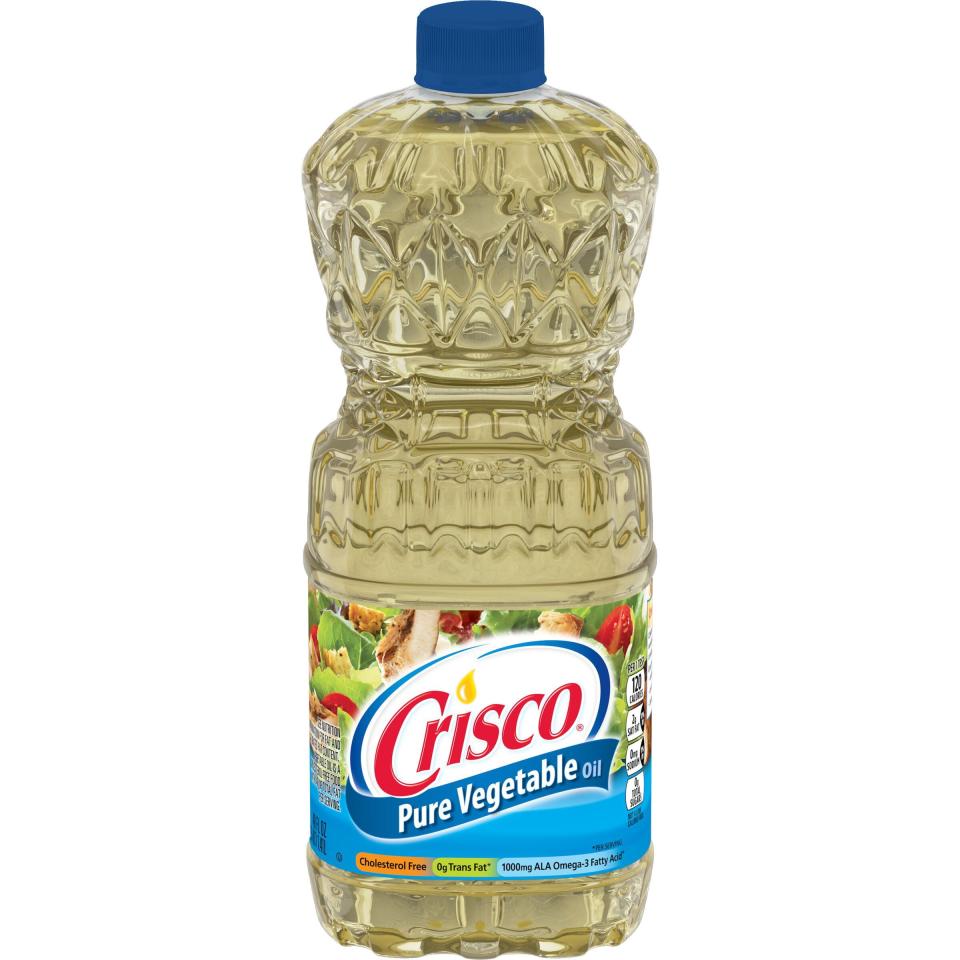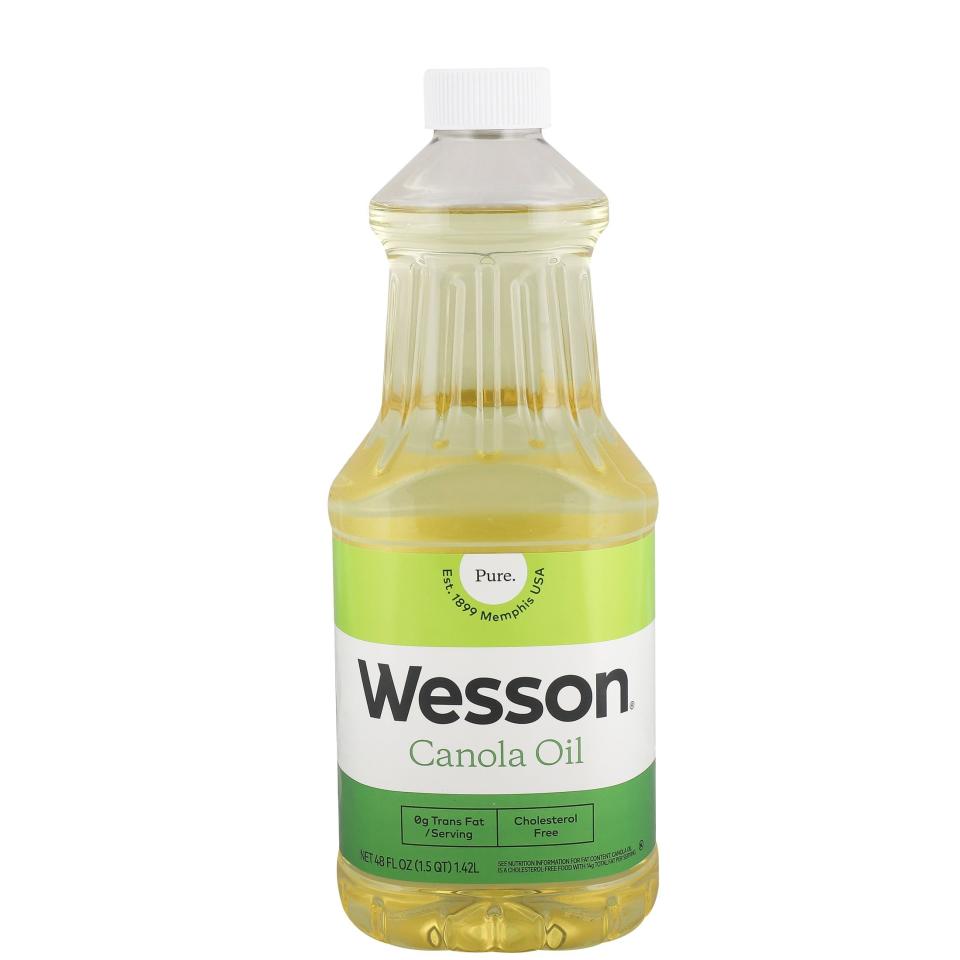
"Hearst Magazines and Yahoo may earn commission or revenue on some items through the links below."
In the grocery store aisle of cooking oils, two stand out as some of the most commonly purchased and used: canola oil and vegetable oil. And it makes sense, if you think about it. They are both neutral in flavor with high smoke points for frying, making them super versatile in the kitchen. You can use them in recipes for German chocolate cake to fried chicken and everything in between.
But when do you use canola oil versus vegetable oil? Many recipes use them interchangeably, they are both plant-based, and they look quite similar, so is there really a difference? There is, and we're here to help you sort out all the greasy details.

What is the difference between canola oil and vegetable oil?
Canola and vegetable oil have another thing in common: Neither is named for the plant from which they are derived. Unlike their popular cousin olive oil, there is no canola plant. "Canola" is short for "Canadian Oil Low Acid," and acronym that Canadian scientists made up for their hybrid, non-toxic rapeseed plant in the 1970s. In short, canola oil is a type of rapeseed oil.
Vegetable oil is a little more confusing, because it is a general term that excludes animal-based oils but can refer to any number of plant oils. So technically, canola oil can be considered a vegetable oil. But most brands labeled as vegetable oil are made out of corn, soy, or a combination of them. If you want to know exactly what you have in your cabinet, check the ingredient list on the side, because it has to tell you by law.

Crisco Pure Vegetable Oil
$4.98
walmart.com
walmart.comWhich is better for you: canola oil or vegetable oil?
While plant-based oils are generally considered more healthy than animal fats, canola oil is lower in saturated fat than vegetable oil. It is also higher in ALA omega-3 fatty acid, which is essential for your body but you can only get through consuming foods. (That's why salmon is so good for you!) So, if you're being super health conscious or allergic to soy, go for canola oil. But in moderation, either oil is perfectly fine to use

Wesson Canola Oil
$5.98
walmart.com
walmart.comIs it okay to use canola oil instead of vegetable oil?
Most often, canola and vegetable oils can be used interchangeably when cooking. They both have a mild flavor and a similar smoke point of about 400°, which is when the oil will start to break down. Side by side, you may be able to tell a slight difference in flavor but once they are used in a recipe, it would very hard to tell them apart. That means you can substitute one for the other when baking a hummingbird cake or sautéing some chicken sausage, and you should get the same delicious results. So go ahead, stock up your pantry with whatever looks best to you. Neither will disappoint!
You Might Also Like
"vegetable" - Google News
January 30, 2023 at 11:13PM
https://ift.tt/eOZTpnx
Is There a Difference Between Canola and Vegetable Oil? - Yahoo Life
"vegetable" - Google News
https://ift.tt/1bstg6n
https://ift.tt/YCH3w9e
Bagikan Berita Ini














0 Response to "Is There a Difference Between Canola and Vegetable Oil? - Yahoo Life"
Post a Comment